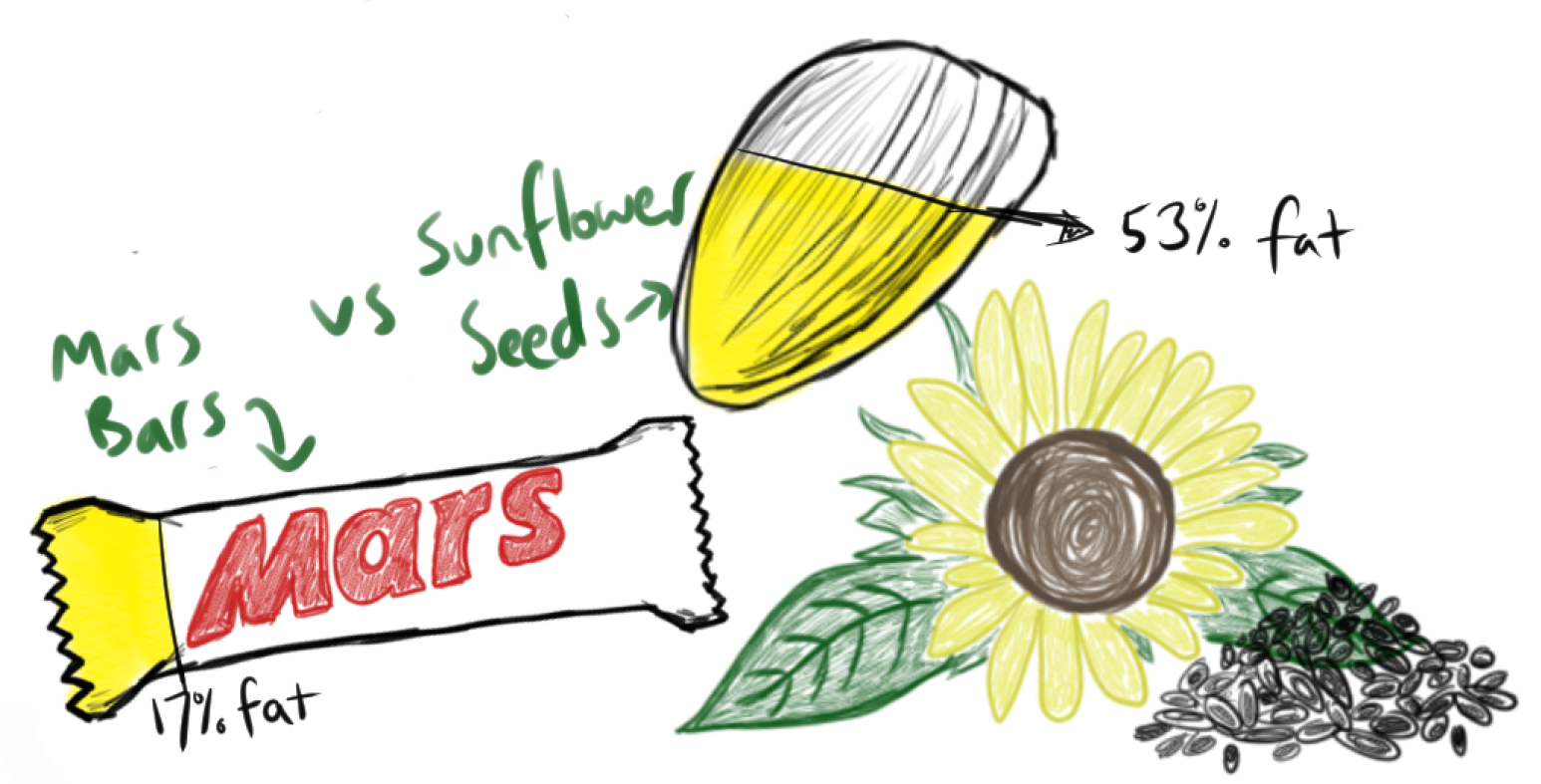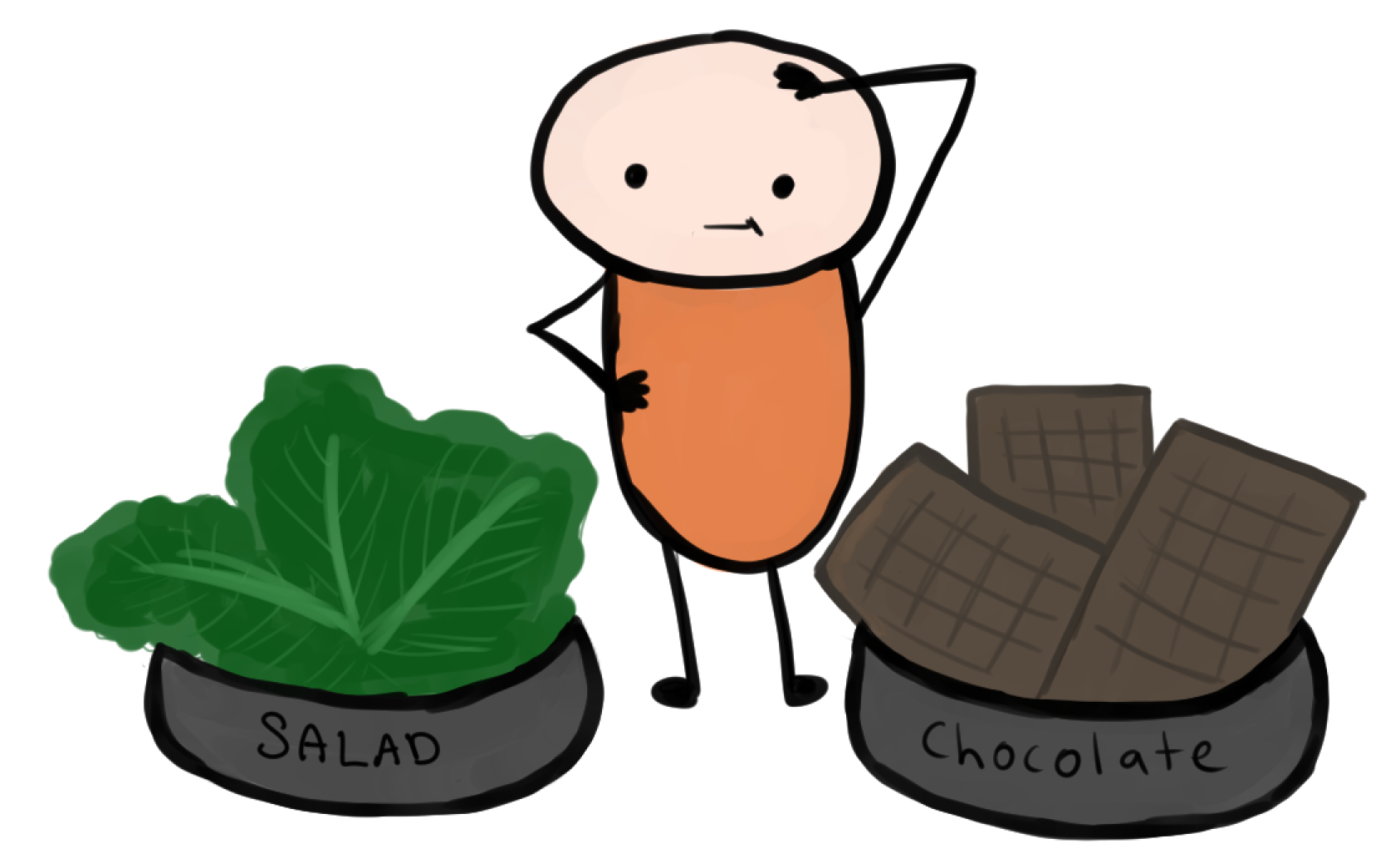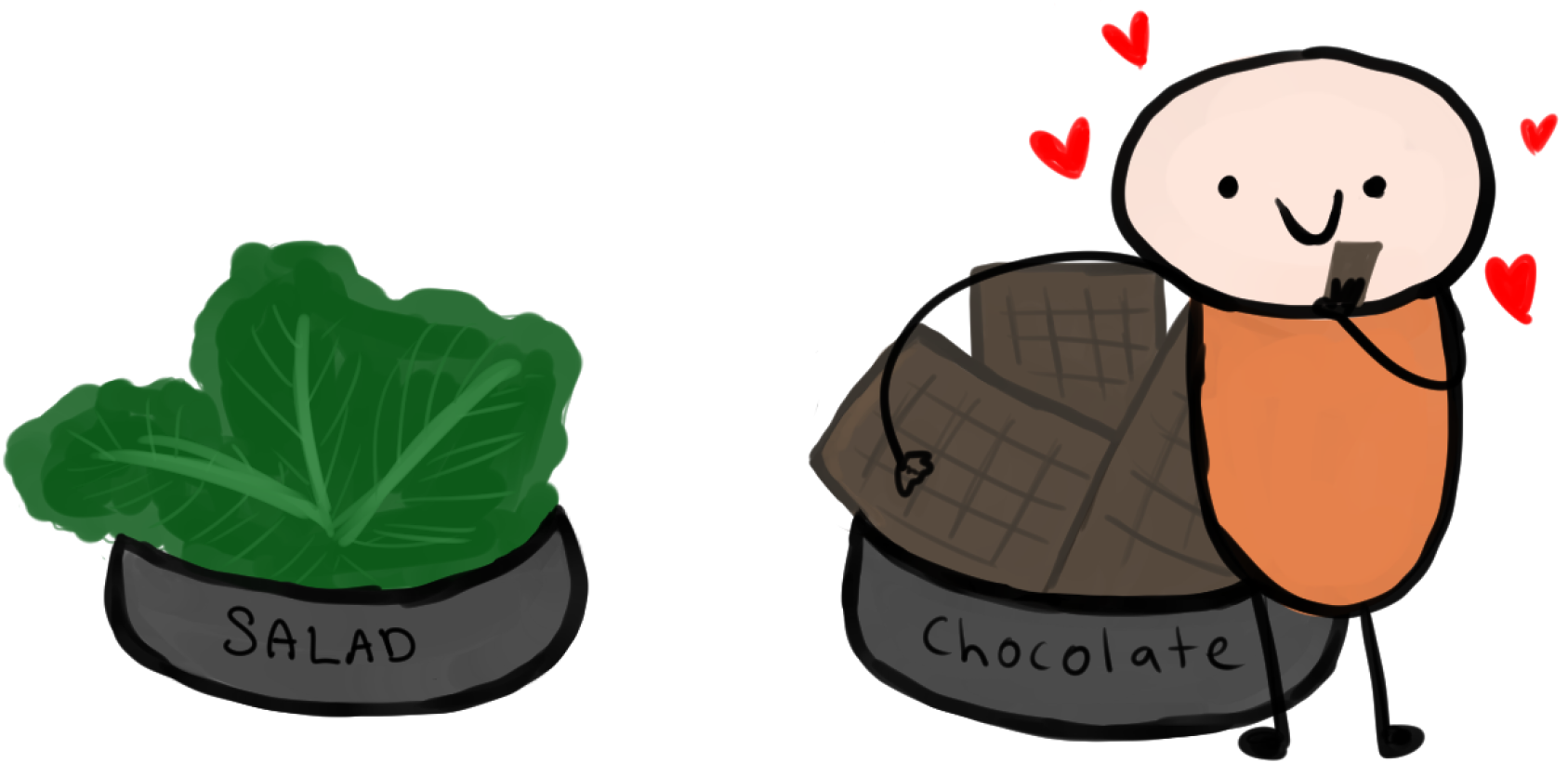Why Pet Birds Shouldn't Eat Seed
🗓️ October 27, 2019 | 🕒 8 min read
An all-seed diet is likely to result in a myriad of health problems and shorten your bird’s lifespan significantly. Although the pet isle at the supermarket will try to convince you otherwise, a healthy, balanced diet for parrots is not providing a fresh bowl of seeds every morning. In fact, a diet consisting of only seeds is a pretty certain way to shorten your feathery friends’ life. Let’s look at why this is so, and what we can do to ensure our parrots live a long and healthy life!
Don’t birds eat seed? #
In the wild, birds do eat seed. However, there are many reasons why the seeds they eat, the reasons they eat it and the way they retrieve them differs from what we feed our domesticated companions. There are over 350 different species of parrots living in four different continents and many different islands around the world. Each of these species has a natural diet that has evolved specifically to suit the area in which they reside. With such a vast range of habitats, a parrot’s diet varies significantly between species. For this reason we should not assume that all species of parrots will have their nutritional requirements met with a generic bag of “bird-seed”. Furthermore, different species display very different eating habits. For example, there are parrots who are nectar eaters, consuming no seed at all (lorikeets and lories), some who are mainly fruit eaters (eg. eclectus parrots and many South American species) and others who are grainivores (eg. budgies and cockatoos). Research has shown that wild budgerigars consume over 30 different species of native seeds. Considering your average parakeet seed mix only contains about 5 different species of seeds, it’s clear we are depriving our pets of the variety they need. On top of this, it is important to consider that most parrots in the wild do not limit their diet to exclusively seeds. Even grainivores supplement their diet with plant material and the occasional insect; especially in times of growth, reproduction or moulting. Diversity in the diet is important for ensuring adequate intake of essential amino acids, vitamins and minerals. Moreover, the seeds contained in supermarket mixes have been mostly developed from American agricultural crops, which are very different from the natural varieties available to African, Asiatic and Australian species. In the wild, parrots spend an estimated 50% of their day foraging for food, meaning they require a higher energy intake than the average captive bird whose foraging activity for the day usually involves a short climb over to the food bowl. Since seeds are a rich in energy, they are a valuable supplement for wild parrots, allowing them to easily reach their daily energy requirement. Unlike wild birds who have access to fresh seeds, unfortunately, seeds found on the shelf of a supermarket tend to be old and stale. This means they have declines in nutritional value and also have an increased risk of bacterial and fungal contamination. Now let’s have a closer look at the specifics of what’s wrong with your average supermarket variety of bird seed.
What’s so bad about seed? #
Sunflower seeds contain a whopping 53% fat… a mars bar is 17% fat and McDonalds fries are 14%
Seeds are the tiny bundle of energy that makes developing into a plant possible. In comparison with other macrominerals, fat is the densest source of energy, with the highest calorie content per gram, perfect for growing a plants out of a tiny seed! Unfortunately, for our birdy friends, this compact energy source means that a modest amount of seeds results in a massive amount of calories. Sunflower seeds are a whopping 53% fat. To put that into perspective, lets compare that to a mars bar which is 17% fat and McDonalds fries which are 14%. No wonder birds love sunflower seeds so much, they are a bird’s version of chocolate!

Aside from being generally high in fat, birds will usually pick out their favourite seeds (often the sunflower seeds). Both wild and pet parrots are bad at self-selecting diets to fulfil all their nutritional requirements. Give a bird a bowl of seed along with their veggies and they are probably going to ignore the greens and binge on the seed (aka bird chocolate)! Imagine if someone gave you the choice between kale salad or a bowl of chocolate for dinner…

I know which option I would choose!

Each type of seed contains different amounts of amino acids, vitamins and minerals. When they play favourites with the different seed types (or choose seed over veggies) they deprive themselves of essential nutrients and may over consume others. This can lead to toxicity. When parrots eat seed, they crack open the husk and eat the small embryo inside. Many brands of birdseed claim a fully balanced diet because the seeds have been mixed with vitamin and mineral supplement. However, this supplement is just a coating on the outside of the seeds, which your bird throws on the floor. Approximately 18–69% of a seed mixture is husks, so a fair chunk of your money is going towards something the bird won’t eat and a mess that you have to clean up! On top of that, you are still left with a bird who is missing out on the nutrition it requires.
The health implications of an all-seed diet #
A poor diet is the leading cause of health problems in companion birds. Seeds are deficient in vitamin A, D and K (and E if stored for a long time). They are also deficient in minerals such as calcium, manganese, iron and zinc. Depending on where the seed was grown, it may also be deficient in iodine or selenium.
Lets have a look at just a few of the most common health implications that are encountered when feeding a bird an all-seed diet:
- Obesity and fatty liver disease: The high intake of fat causes fat to be deposited in the liver, impairing its function. This can result in difficulty breathing, discoloured feathers and an overgrown beak and claws. The liver is responsible for many important tasks including producing clotting factors that stop bleeding. If a bird with poor liver function bleeds, for example, due to a broken feather, the bleeding may not stop and your bird could die as a result. This is also important if your bird requires surgery, as a vet might refuse to perform surgery due to the risk of uncontrolled bleeding. As the diseases progresses, the liver loses its ability to detoxify the blood, resulting in a build up of toxins and neurological signs such as seizures. Ultimately, this is a fatal disease.
- Hypovitaminosis A: Low vitamin A is a very common disease seen in birds on all-seed diets. Vitamin A is important for healthy skin, vision, growth and maintaining a healthy respiratory and gastrointestinal tract. A bird deficient in vitamin A may have overgrown skin on their feet, leading to foot infections. They may also have crusted nostrils and form slimy, white plaques inside their mouth, making it difficult for them to breath.
- Low calcium and vitamin D: Pet birds are especially at risk if they are housed indoors. They do not receive enough sunlight to make sufficient vitamin D themselves, so instead rely on only dietary intake. Unfortunately seeds are low in both vitamin D and calcium, predisposing the bird to diseases such as rickets (young birds), osteoporosis (breeding birds) and egg binding. When there is not enough calcium available in the body, it is removed from the bones, causing them to become thin. This heightens the risk of fractures, which may necessitate euthanasia.
- Iodine deficiency and goitre: An iodine deficiency may result in enlargement of the thyroid glands (goitre). Budgies are especially prone to this disease. Thyroid glands are located near the windpipe, hence, their enlargement can make breathing difficult and cause a change of voice. An audible wheezing sound may be heard when the bird breathing and it may extend its neck in attempt to make the task of breathing easier. The lump may also obstruct the oesophagus, which can lead to crop dilation and vomiting.
These are just a few of the health problems that may occur as a result of feeding seeds as a major portion of the diet. Unfortunately, many of these issues propagate each other causing the bird to suffer multiple illnesses.
So what should I feed my bird? #
Instead of seeds, formulated diets such as pellets should form the bulk of the menu. These diets have been specially made to provide the correct amount of nutrients for your bird. Another great advantage of these products is that they bundle everything together in identical little balls, preventing the bird from over-indulging on fat-filled items like sunflower seeds.
Supplement the formulated diet with daily vegetables and a small amount of fruit. This provides diversity and excitement, while also ensuring nutritional requirements are well and truly met.
Sadly, many bird owners today still feed a diet comprising only or mainly of seeds. The health problems associated with feeding birds an all-seed diet are life threatening and impair the bird’s quality of life significantly. Although transferring birds over to a formulated diet can be difficult, it is well worth the effort and could save you and your parrot a lot of heart-ache and vet bills down the track. It’s time we changed the typical diet of pet parrots and parakeets around the world and started providing our feathered friends with the best possible chance at a long and healthy life. Thank you so much for reading, I hope this post has helped clear-up some of your queries relating to parakeet/parrot feeding.